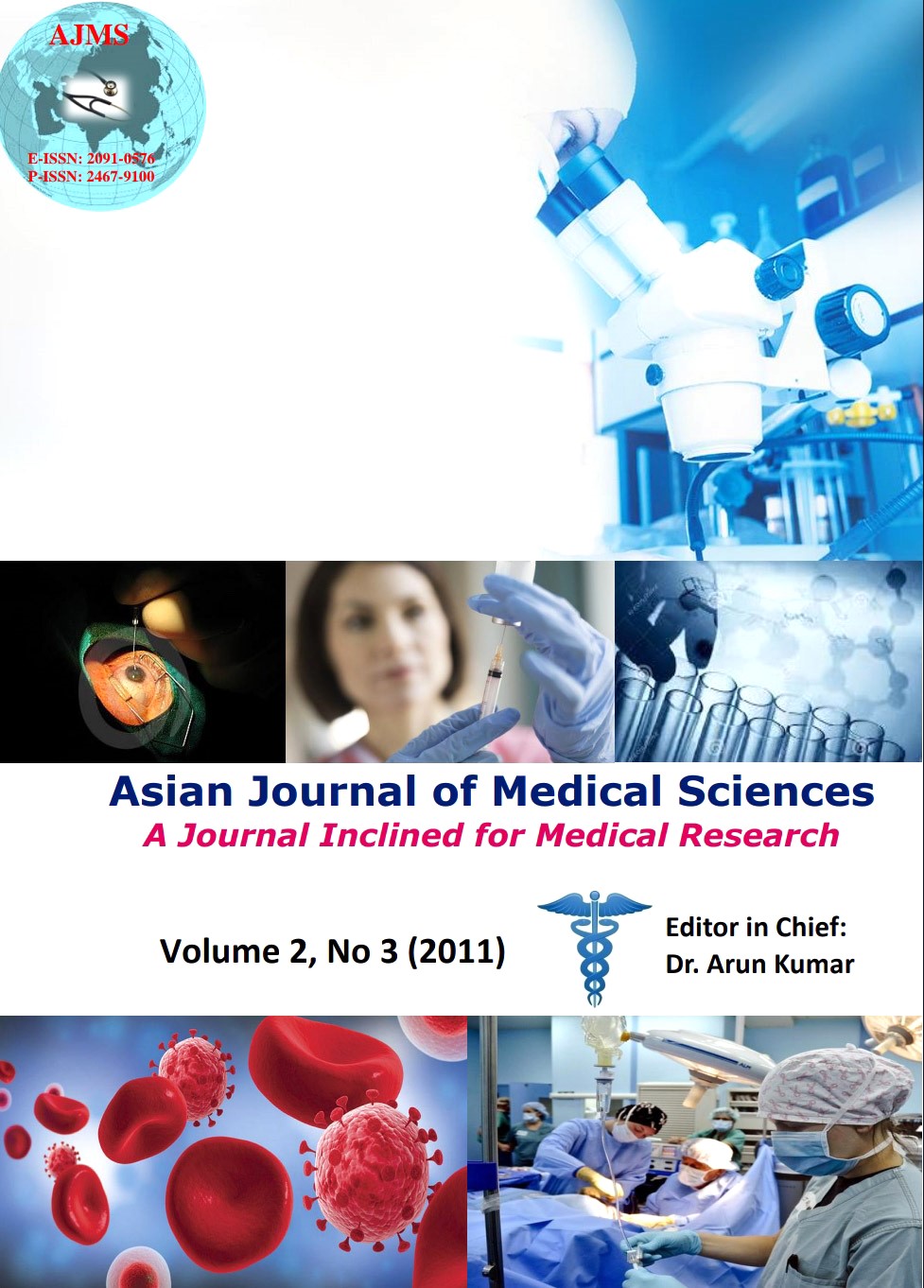Need of Improvement in Timing of Prophylactic Antibiotic in Elective Surgery
Keywords:
antibiotic prophylaxis, guidelines, protocol, surgical site infectionAbstract
Objective: Infections in surgery are major concern of morbidity, mortality, and costs. Timely antibiotic prophylaxis (AP) before incision ensures optimum concentration of AP in blood and tissues to prevent surgical site infections (SSIs). However, proper timing of AP remains problematic as reported by various studies, though none so far from local institutions in Nepal. Aim of this cross sectional observation study was to assess and address the issues of timing of AP and need for improvements.
Material & Methods: Convenient sample target of 100 cases of preoperative AP were studied from Oct 1 to Oct 30, 2010. Data were prospectively entered in predesigned ‘AP form’ for all major elective surgeries, except obstetric cases, who received AP of intravenous Cefazoline 1 g as per existing hospital protocol. Time of AP administration in respect to incision time was analyzed.
Results: There were 125 cases during study period. Majority, 81% received AP before incision, while 19% had AP after the incision. Only 1% of patients received AP within recommended period within 60 to 30 minutes before incision.
Conclusion: Current practice of antibiotic prophylaxis (AP) at our institutions needs improvement as per standard guidelines of AP within 60 to 30 minutes before incision.
DOI: http://dx.doi.org/10.3126/ajms.v2i3.5610
Asian Journal of Medical Sciences 2 (2011) 207-211
Downloads
Downloads
Published
How to Cite
Issue
Section
License
Authors who publish with this journal agree to the following terms:
- The journal holds copyright and publishes the work under a Creative Commons CC-BY-NC license that permits use, distribution and reprduction in any medium, provided the original work is properly cited and is not used for commercial purposes. The journal should be recognised as the original publisher of this work.
- Authors are able to enter into separate, additional contractual arrangements for the non-exclusive distribution of the journal's published version of the work (e.g., post it to an institutional repository or publish it in a book), with an acknowledgement of its initial publication in this journal.
- Authors are permitted and encouraged to post their work online (e.g., in institutional repositories or on their website) prior to and during the submission process, as it can lead to productive exchanges, as well as earlier and greater citation of published work (See The Effect of Open Access).




